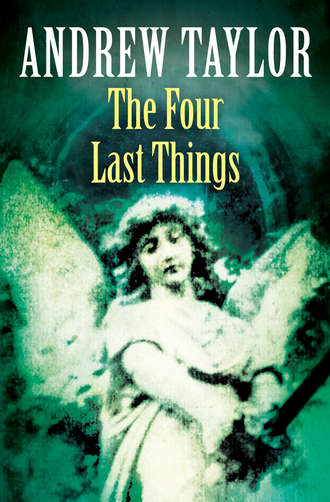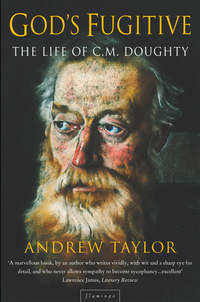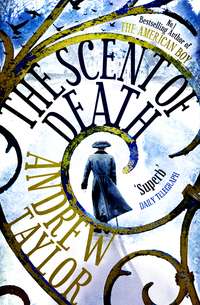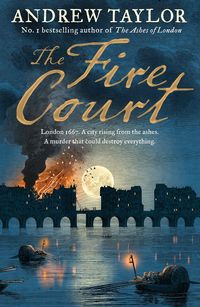
Полная версия
The Four Last Things
Loneliness? Was that the reason? It seemed such an inadequate answer to such a complicated question.
As it happened, Stanley enjoyed his own company. He spent much of his time in the basement.
The stairs from the hall came down to a large room, originally the kitchen, at the back of the house. Two doors opened from it – one to the former coal cellar, and the other to a dank scullery with a quarry-tiled floor. Because of the lie of the land, the scullery and coal cellar were below ground level at the front of the house. A third door had once given access to the back garden, but Stanley screwed this to its frame in the interests of security.
The basement smelled of enamel paint, turpentine, sawdust, photographic chemicals, cigarettes and damp. Always good with his hands, Stanley built a workbench across the rear wall under the window overlooking the garden. He glued cork tiles to the wall to make a notice board on which he pinned an ever-changing selection of photographs and also a plan of the dolls’ house he was working on. He kept freestanding furniture to a minimum – a stool for use at the workbench; a two-seater sofa where he relaxed; and a low Victorian armchair with a button back and ornately carved legs. (The latter appeared and reappeared in many of Stanley’s photographs, usually with one or more occupants.)
Finally, there was the tall cupboard built into the alcove on the left of the chimney breast. It had deep, wide shelves and was probably as old as the house. Stanley secured it with an enormous padlock.
In the early days, the basement was forbidden territory to Eddie (and even later he entered it only by invitation). Usually the door was closed but once, as he passed through the hall, Eddie noticed that it was half-open. He crouched and peered down the stairs. Stanley was standing at the workbench examining a photograph with a magnifying glass.
His father turned and saw him. ‘Hello, Eddie. I think Mummy’s in the kitchen.’ With the magnifying glass still in his hand he came towards the stairs, smiling widely in a way that made his cheeks bunch up like a cat’s. ‘Run along, now. There’s a good boy.’
Eddie must have been five or six. He was not usually a bold boy – quite the reverse – but this glimpse of the unknown room had stimulated his curiosity. In his mind he cast about for a delaying tactic. ‘That door, Daddy. What’s the padlock for?’
The smile remained fixed in place. ‘I keep dangerous things in the cupboard. Poisonous photographic chemicals. Very sharp tools.’ Stanley bent down and brought his cat’s smile very close to Eddie. ‘Think how dreadful it would be if there were an accident.’
Eddie must have been about the same age when he overheard an episode which disturbed him, though at the time he did not understand it. Even as an adult he understood it only partly.
It happened during a warm night in the middle of a warm summer. In summer Eddie dreaded going upstairs because he knew it would take him longer than usual to go to sleep. Pink and sweating, he lay in bed, holding a soft toy, vaguely humanoid but unisex, whom he called Mrs Wump. As so often happens in childhood, time stretched and stretched until it seemed to reach the borders of eternity. Eddie stroked himself, trying to imagine that he was stroking someone else – a cat, perhaps, or a dog; at that age he would have liked either. His palms glided over the curve of his thighs and slipped between his legs. He slid into a waking dream involving Mrs Wump and a soft, cuddly dog.
The noises from the street diminished. His parents came upstairs. As usual his door was ajar; as usual neither of them looked in. He was aware of them following their usual routine – undressing, using the bathroom, returning to their bedroom. Some time later – it might have been minutes or even hours – he woke abruptly.
‘Ah – ah –’
His father groaned: a long, creaking gasp unlike any other noise Eddie had heard him make; an inhuman, composite sound not unlike those he associated with the distant trains. Silence fell. This was worse than the noise had been. Something was very wrong, and he wondered if it could somehow be his fault.
A bed creaked. Footsteps shuffled across the bedroom floor. The landing light came on. Then his mother spoke, her voice soft and vicious, carrying easily through the darkness.
‘You bloody animal.’
One reason why Eddie liked Lucy Appleyard was because she reminded him of Alison. The resemblance struck him during the October half-term, when Carla took Lucy and the other children to the park. Eddie followed at a distance and was lucky enough to see Lucy on one of the swings.
Alison was only a few months younger than Eddie. But when he had known her she could not have been much older than Lucy was now. The girls’ colouring and features were very different. The resemblance lay in how they moved, and how they smiled.
Eddie did not even know Alison’s surname. When he was still at the infants’ school at the end of Rosington Road, she and her family had taken the house next door on a six-month lease. She had lived with her parents and older brother, a rough boy named Simon.
The father made Alison a swing, which he hung from one of the trees at the bottom of their garden. One day, when Eddie was playing in the thicket at the bottom of the Graces’ garden, he discovered that there was a hole in the fence. One of the boards had come adrift from the two horizontal rails which supported them. The hole gave Eddie a good view of the swing, while the trees sheltered him from the rear windows of the houses.
Alison had a mass of curly golden hair, neat little features and very blue eyes. In memory at least, she usually wore a short, pink dress with a flared skirt and puffed sleeves. When she swung to and fro, faster and faster, the air caught the skirt and lifted it. Sometimes the dress billowed so high that Eddie glimpsed smooth thighs and white knickers. She was smaller than Eddie, petite and alluringly feminine. If she had been a doll, he remembered thinking, he would have liked to play with her. In private, of course, because boys were not supposed to play with dolls.
Eddie enjoyed watching Alison. Gradually he came to suspect that Alison enjoyed being watched. Sometimes she shifted her position on the swing so that she was facing the hole in the fence. She would sing to herself, making an elaborate pretence of feeling unobserved; at the time even Eddie knew that the pretence was not only a fake but designed to be accepted as such. She made great play with her skirt, allowing it to ride up and then smoothing it fussily over her legs.
Memory elided the past. The sequence of events had been streamlined; inessential scenes had been edited out, and perhaps some essential ones as well. He remembered the smell of the fence – of rotting wood warmed by summer sunshine, of old creosote, of abandoned compost heaps and distant bonfires. Somehow he and Alison had become friends. He remembered the smooth, silky feel of her skin. It had amazed him that anything could be so soft. Such softness was miraculous.
Left to himself, Eddie would never have broken through the back fence. There were two places behind the Graces’ garden, both of which were simultaneously interesting and frightening, though for different reasons: to the right was the corner of the plot on which the council flats had been built; and to the left was the area known to adults and children alike as Carver’s, after the company which had owned it before World War II.
The council estate was too dangerous to be worth investigating. The scrubby grass around the blocks of flats was the territory of large dogs and rough children. Carver’s contained different dangers. The site was an irregular quadrilateral bounded to the north by the railway and to the south by the gardens of Rosington Road. To the east were the council flats, separated from Carver’s by a high brick wall topped with broken glass and barbed wire. To the west it backed on to the yards behind a terrace of shops at right angles to the railway. The place was a labyrinth of weeds, crumbling brick walls and rusting corrugated iron.
According to Eddie’s father, Carver’s had been an engineering works serving the railway, and during a wartime bombing raid it had received a direct hit. In the playground at Eddie’s school, it was widely believed that Carver’s was haunted by the ghost of a boy who had died there in terrible, though ill-defined, circumstances.
One morning Eddie arrived at the bottom of the Graces’ garden to find Alison examining the fence. On the ground at her feet was a rusting hatchet which Eddie had previously seen in the toolshed next door; it had a tall blade with a rounded projection at the top. She looked up at him.
‘Help me. The hole’s nearly large enough.’
‘But someone might see us.’
‘They won’t. Come on.’
He obeyed, pushing with his hands while she levered with the hatchet. He tried not to think of ghosts, parents, policemen and rough boys from the council flats. The plank, rotting from the ground up, cracked in two. Eddie gasped.
‘Ssh.’ Alison snapped off a long splinter. ‘I’ll go first.’
‘Do you think we should?’
‘Don’t be such a baby. We’re explorers.’
She wriggled head first into the hole. Eddie followed reluctantly. A few yards from the fence was a small brick shed with most of its roof intact. Alison went straight towards it and pushed open the door, which had parted company with one of its hinges.
‘This can be our place. Our special place.’
She led the way inside. The shed was full of rubbish and smelled damp. On the right was a long window which had lost most of its glass. You could see the sky through a hole in the roof. A spider scuttled across the cracked concrete floor.
‘It’s perfect.’
‘But what do you want it for?’ Eddie asked.
She spun round, her skirt swirling and lifting, and smiled at him. ‘For playing in, of course.’
Alison liked to play games. She taught Eddie how to do Chinese burns, a technique learned from her brother. They also had tickling matches, all the more exciting because they had to be conducted in near silence, in case anyone heard. The loser, usually Eddie, was the one who surrendered or who was the first to make a noise louder than a whisper.
There were other games. Alison, though younger than Eddie, knew many more than he did. It was she who usually took the lead. It was she who suggested the Peeing Game.
‘You don’t know it?’ Her lips formed an O of surprise, behind which gleamed her milk-white teeth and tip of her tongue. ‘I thought everyone knew the Peeing Game.’
‘I’ve heard about it. It’s just that I’ve never played it.’
‘My brother and I’ve been playing it for years.’
Eddie nodded, hoping she would not expose his ignorance still further.
‘We need something to pee into.’ Alison took his assent for granted. ‘Come on. There must be something in here.’
Eddie glanced round the shed. He was embarrassed even by the word ‘pee’. In the Grace household the activity of urination was referred to, when it was mentioned at all, by the euphemism ‘spending a penny’. His eye fell on an empty jam jar on a shelf at the back of the shed. The glass was covered on both sides with a film of grime. ‘How about that?’
Alison shook her head, and the pink ribbons danced in her hair. ‘It’s far too small. I can do tons more than that. Anyway, it wouldn’t do. The hole’s too small.’ Something of Eddie’s lack of understanding must have shown in his face. ‘It’s all right for you. You can just poke your willy inside. But with girls it goes everywhere.’
Curiosity stirred in Eddie’s mind, temporarily elbowing aside the awkwardness. He picked up a tin. ‘What about this?’
Alison examined it, her face serious. The tin was about six inches in diameter and had once contained paint. ‘It’ll do.’ She added with the air of one conferring a favour, ‘You can go first.’
His muscles clenched themselves, as they did when he was about to step into cold water.
‘Boys always go first,’ Alison announced. ‘My brother Simon does.’
There seemed no help for it. Eddie turned away from her and began to unbutton the flies of his khaki shorts. Without warning she appeared in front of him. She was carrying the paint tin.
‘You have to take your trousers and pants down. Simon does.’
He hesitated. His lower lip trembled.
‘It’s only a game, stupid. Don’t be such a baby. Here – I’ll do it.’
She dropped the tin with a clatter on the concrete floor. Brisk as a nurse, she undid the snakeskin buckle of his elasticated belt, striped with the colours of his school, green and purple. Before he could protest, she yanked down both the shorts and his Aertex pants in one swift movement. She stared down at him. He was ashamed of his body, the slabs of pink babyish fat that clung to his belly and his thighs. A boy at the swimming baths had once said that Eddie wobbled like a jelly.
Still staring, Alison said, ‘It’s smaller than Simon’s. And he’s a roundhead.’
To his relief, Eddie understood the reference: Simon was circumcised. ‘I’m a cavalier.’
‘I think I like cavaliers better. They’re prettier.’ She scooped up the tin. ‘Go on – pee.’
She held out the tin. Eddie gripped his penis between the forefinger and thumb of his right hand, shut his eyes and prayed. Nothing happened. In normal circumstances he would have had no trouble in going because his bladder was full.
‘If you’re going to take all day, I might as well go first.’ Alison glared at him. ‘Honestly. Simon never has any trouble.’
She placed the tin on the floor, pulled down her knickers and squatted. A steady stream of urine squirted into the can. She raised the hem of her dress and examined it, as though inspecting the quality of the stitching. So that was what girls looked like down there, Eddie thought, still holding his penis; he had often wondered. He craned his neck, hoping for a better view, but Alison smiled demurely and rearranged her dress.
‘If you keep on rubbing your willy, it goes all funny. Did you know?’ Alison raised herself from the tin and pulled up her knickers. ‘At least, Simon’s does. Look – I’ve done gallons.’
Eddie looked. The tin was about a quarter full of liquid the colour of pale gold. Until now he had assumed that he was shamefully unique in having a penis which sometimes altered shape, size and consistency when he touched it; he had hoped that he might grow out of it.
‘It’s nearly half-full. I bet you can’t do as much.’
As Eddie glanced towards Alison, he thought he caught a movement at the window. When he looked there was no one there, just a branch waving in the breeze.
‘What did I tell you? It’s going stiff.’
Eddie was still holding his penis – indeed, his fingers had been absent-mindedly massaging it.
‘Empty my pee outside the shed,’ Alison commanded. ‘Then you can try again.’
Eddie realized suddenly how absurd he must seem with his shorts and pants around his knees. He pulled them up quickly, buttoned his flies and fastened his belt.
‘I don’t know why you’re bothering to do yourself up. You’ll only have to undo it all again.’
He went outside the shed and emptied the can under a bush. The tin was warm. The liquid ran away into the parched earth. It didn’t look or smell like urine. He wondered what it would taste like. He pushed the thought away – disgusting – and straightened up to return to the shed, his mind full of the ordeal before him. For an instant he thought he smelled freshly burned tobacco in the air.
Eddie and Alison played the Peeing Game on many occasions, and each time they explored a little further.
Fear of discovery heightened the pleasure. When they went into Carver’s, there was often a woman on the balcony of one of the council flats. The balcony overlooked both Carver’s and the garden of 29 Rosington Road. Sometimes the woman was occupied – hanging washing, watering plants; but on other occasions she simply stood there, very still, and watched the sky. Alison said the woman was mad. Eddie worried that she might see them and tell their parents that they were trespassing in Carver’s. But she never did.
Eddie’s memories of the period were patchy. (He did not like to think too hard about the possibility that he had willed this to be so.) He must have been six, almost seven, which meant that the year was 1971. It had been summertime, the long school holidays. He remembered the smell of a faded green short-sleeved shirt he often wore, and the touch of Alison’s hand, plump and dimpled, on his bare forearm.
The end came in September, and with shocking suddenness. One day Alison and her family were living at number 27, the next day they were gone. On the afternoon before they left, she told Eddie that they were moving to Ealing.
‘But where’s Ealing?’ he wailed.
‘How do I know? Somewhere in London. You can write me letters.’
Eddie cried when they parted. Alison forgot to leave her address. She slipped away from him like a handful of sand trickling through the fingers.
3
‘I feel sometimes a Hell within my self; Lucifer keeps his Court in my breast, Legion is revived in me.’
Religio Medici, I, 51
Sleep caught Sally in mid-sentence, as sudden as a drawn curtain or nightfall in the Tropics. One moment she was lying in bed, holding the hand of a policewoman she had never met before; the policewoman’s lips were moving but Sally wasn’t listening because she was too busy wondering why she was holding the hand of a total stranger. Then the sleeping tablets cut in, blending with whatever the hypodermic had contained, probably a tranquillizer.
Michael had not been there. She hadn’t seen him for hours.
Her mind went down and down into a black fog. Smothered by chemicals, she slept for hours, so deeply asleep that she was hardly a person any more. In the early hours of Saturday morning, the fog began gradually to clear. She slept on but now there were dreams, at first wispy and insubstantial – a suspicion of raised voices, a hint of bright lights, a sense of overwhelming sadness.
Later still, the images coalesced into a whole that was neither a picture nor a story. Afterwards, when Sally woke bathed in sweat on a cold morning, she remembered a bell tolling, its sound dulled by the winter air. She saw dirty snow on cobbles, mixed with fragments of straw and what looked like urine and human excrement. A spire built of raw, yellow stone and surmounted by a distant cross rose towards the grey sky.
In the dream a man was speaking, or rather declaiming slowly in a harsh, deep voice which Sally instinctively disliked. She could not make out the words, or even the language they were spoken in, partly because she was too far away and partly because they were distorted by hissing and cracking and popping in the background. Still in the dream, Sally was reminded of the 78-r.p.m. records she played as a child on the wind-up gramophone in her grandparents’ attic; the scratches had overwhelmed the ghostly frivolities of the Savoy Orpheans and Fats Waller.
When Sally woke up, her mouth was dry and her mind clouded. The dream receded as she neared consciousness, details slipping away, drifting downwards beyond retrieval.
‘Come back,’ she called silently. Her eyes, still closed, were wet with tears. Something terrible was happening in the dream, which at all costs had to be put right. But at least it was only a dream. For a split second relief touched her: only a dream, thank God, only a dream. Then she opened her eyes and saw a woman she had never seen before sitting by her bed. Simultaneously the truth hit her. No, it’s not true, NOT true, NOT TRUE.
‘You all right, love?’ the woman asked, bending forward.
Sally levered herself up on one elbow. Not true, please God, NOT TRUE. ‘Have they found Lucy?’
The woman shook her head. ‘They’ll be in touch as soon as there’s any news.’
Sally stared at her. It didn’t matter who the woman was. Who cared? She was younger than Sally, her face carefully made up, her brown eyes wary, the teeth projecting slightly, pushing out the lips and giving the impression that the mouth was the most important feature in this face. The Daily Telegraph was open on her lap, folded to one of the inside pages. She did not wear a wedding ring. Sally clung to these details as though they formed a rope strung across an abyss; and if she let go, she would fall.
‘It’s true, isn’t it?’ she heard a voice saying, her voice. ‘All true?’
‘Yes. I’m so sorry.’
Sally let her head fall back on the pillow. She closed her eyes. Her mind filled with a procession of images that made her want to scream and scream until everything was all right again: Lucy crying for her mother and no one answering; Lucy naked and bleeding in a narrow bedroom smelling of male sweat; Lucy lying dead on a railway embankment with her clothes strewn around her. How could anyone be so cruel, so cruel, so cruel?
‘She might have just wandered off,’ Sally said, trying to reassure herself. ‘Got tired out – fallen asleep in a shed or something. She’ll wake up soon and knock on someone’s door.’
‘It’s possible.’
Possible, Sally thought, but highly improbable.
The woman stirred. ‘They say no news is good news.’
Sally opened her eyes again. ‘Has there been no news? Truly?’
‘If there had been news, any news at all, they’d have told you and your husband straightaway. I promise. I’m D C Yvonne Saunders, by the way. I took over from Judith.’ The woman hesitated. ‘You remember Judith? Last night?’
Sally’s head twitched on the pillow. More memories flooded back. A plain-clothes policewoman, Judith, holding her arm while a doctor with ginger curls pushed a hypodermic into the skin. Herself saying – shouting – that she wasn’t going to stay with friends or go to hospital: she was going to stay here, at home in Hercules Road because that was where Lucy would expect to find her; she and Michael had made Lucy memorize both the address and the phone number.
‘They’ll find her, Sally. We’re pulling out all the stops.’ Again a hesitation, a hint of calculation. ‘Doctor left some medicine. Something to help you not to worry. Shall I give you some?’
‘No.’ The refusal was instinctive, but the reasons rushed after it: if they tranquillized her she would be no use to Lucy when – if – they found her; if they turned her into a zombie, she wouldn’t be able to find out what was happening, they wouldn’t tell her anything; she needed to be as clear-headed as possible, for Lucy’s sake. Sally leant back against her pillows. ‘Where’s Michael? My husband?’
The eyes wavered. ‘He’s out. He’ll be back soon, I should think. I expect you’d like to freshen up, wouldn’t you? Shall I make some tea?’
Sally nodded, largely in order to get the woman out of her bedroom. Michael – she needed to think about him but she couldn’t concentrate.
Yvonne stood up, her face creasing into an unconvincing smile. ‘I’ll leave you to it, then.’ She added slowly, as if talking to a person of low intelligence, ‘I shall be in the kitchen, if you need me. All right, love?’
No, Sally wanted to say, it’s not all right; it may never be all right again; and I’m not your love, either. Instead, she returned the smile and said thank you.
When she was alone, she pushed the duvet away from her and got out of bed. The sweat cooled rapidly on her skin and she began to shiver. They had given her clean pyjamas, she realized, clinging to the security of domestic details. She was ashamed to see that the pyjamas were an old pair: the material was faded, a button was missing from the jacket, and there were undesirable stains on the trousers. The shivering worsened and once more the impact of what had happened hit her. Her knees gave way. She sat down suddenly on the bed. My baby. Where are you? The tears streamed down her cheeks.
She dared not make a noise in case Yvonne came back. This is all my fault. I should have kept her with me. She fell sideways and curled up on the bed. Her body shook with silent sobs.








